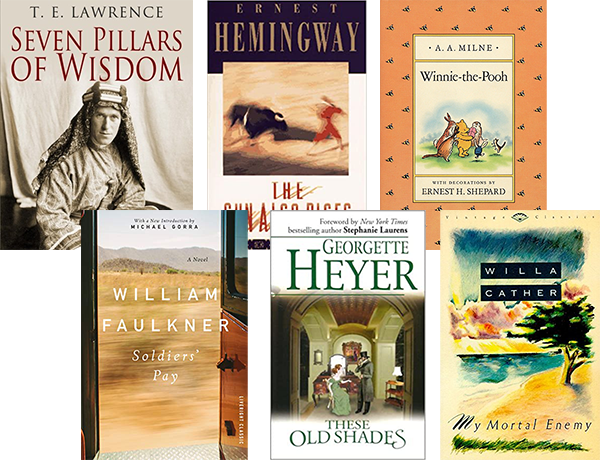
There are many websites that claim to pay people to read, and there are many that do. However it's important to understand what you're trying to accomplish when starting your journey to becoming a paid book reviewer or reader.
Are you trying to become a better writer? Do you want to be able to read books for free? Do you care which books they are? Do you want to write shorter, blurb-style book reviews, or longer form criticism?
Depending on what your goals are, there are four different strategies you can consider pursuing that fall under the umbrella of "getting paid to read."

This year marks the 100th anniversary of the publisher W.W. Norton & Company, which was started by married couple William Warder Norton ("Warder") and Mary Dows Herter Norton ("Polly") in 1923, as the People's Institute Publishing Company. The Nortons believed in the importance of education and thought that leaders of their fields should "bring to the public the knowledge of our time."
Early on, W.W. Norton acquired work by Bertrand Russell, Rainer Maria Rilke and Sigmund Freud, among others. It would continue to be known for publishing influential and groundbreaking material, and would eventually become famous for The Norton Anthology of English Literature, along with subsequent anthologies. After Warder's death, Polly entrusted the company to its employees, asking in exchange for a commitment to keep W.W. Norton independent. It remains independent and employee-owned to this day, which creates a culture of collaboration and shared purpose.

If you love reading, listening to book podcasts can be a great way to spend your spare time. Whether you choose to follow along with a conversation about a book you've enjoyed, an author interview or an author reading, book-based audio content makes for pleasant entertainment at home or on the road. And as reading is often a solitary activity, podcasts can offer a much-needed sense of connection and help stoke your excitement about reading or discussing books with others.
But with the podcast still being a relatively new listening format, and one that's detached from traditional media, it can be tough to know where to start. So we've put together a list for you of some of the best book podcasts out there.

In addition to thousands of author bios and interviews, BookBrowse also contains pronunciation guides for 700 authors' names. For example, these are a handful that you might be getting wrong:
Vivat is Ukraine's second largest publisher, established in 2013 following the merger of two former publishing houses. Its head office is in Kharkiv, Ukraine's largest city after Kyiv, in the northeast near the border with Russia.
Vivat currently has 3,000 books in print and, in a normal year, would release about 400 new titles covering nonfiction, fiction, children's and young adult literature. Its slogan "read, dream, act" exemplifies its mission to popularize reading and promote Ukrainian authors.
In this interview, Vivat CEO Julia Orlova talks about the company's efforts to continue operations during the Russian invasion, the increased international demand for Ukrainian books, and its authors fighting on the front lines.
When you went to bed on the night of February 23rd, did you believe Putin would attack? Had Vivat made preparations in case there was an invasion?
 At four in the morning of February 24th, I was awake texting on Facebook. I posted that it seemed that half of Kharkiv must be awake, as there was already public information about a possible Russian invasion. After that I tried to sleep. Then, around five, I heard the explosions. It was such an incomparable feeling of absolute horror and panic. However, I had to pull myself together as difficult decisions had to be made for the future of the whole company.
At four in the morning of February 24th, I was awake texting on Facebook. I posted that it seemed that half of Kharkiv must be awake, as there was already public information about a possible Russian invasion. After that I tried to sleep. Then, around five, I heard the explosions. It was such an incomparable feeling of absolute horror and panic. However, I had to pull myself together as difficult decisions had to be made for the future of the whole company.
I did not want to believe in a full-scale war until the last moment, as most Ukrainians did not. As a matter of fact, I did not believe that such a thing was possible at all in the 21st century. Vivat worked as usual until the day of the invasion. We were preparing new books, not war plans; but just the day before there had been discussions with colleagues about so-called "anxiety suitcases" as some had already packed them. But essentially all the decisions and actions made to save the business have been made after the war began.
